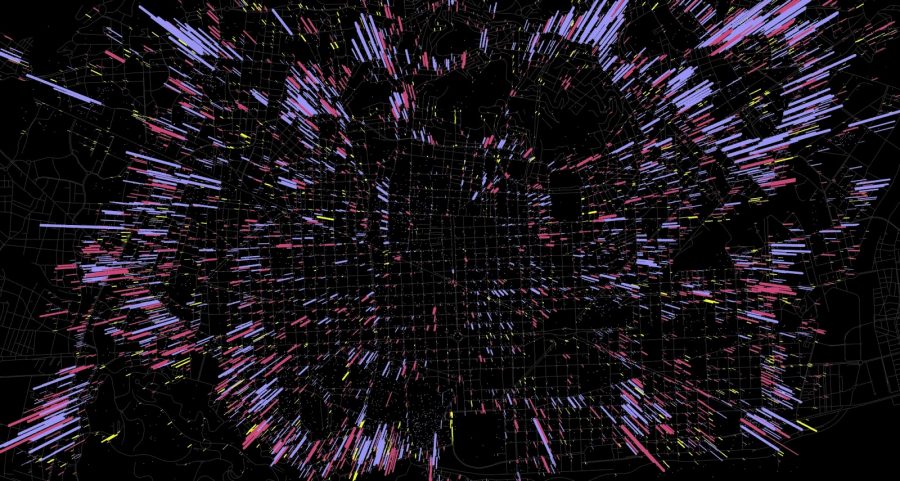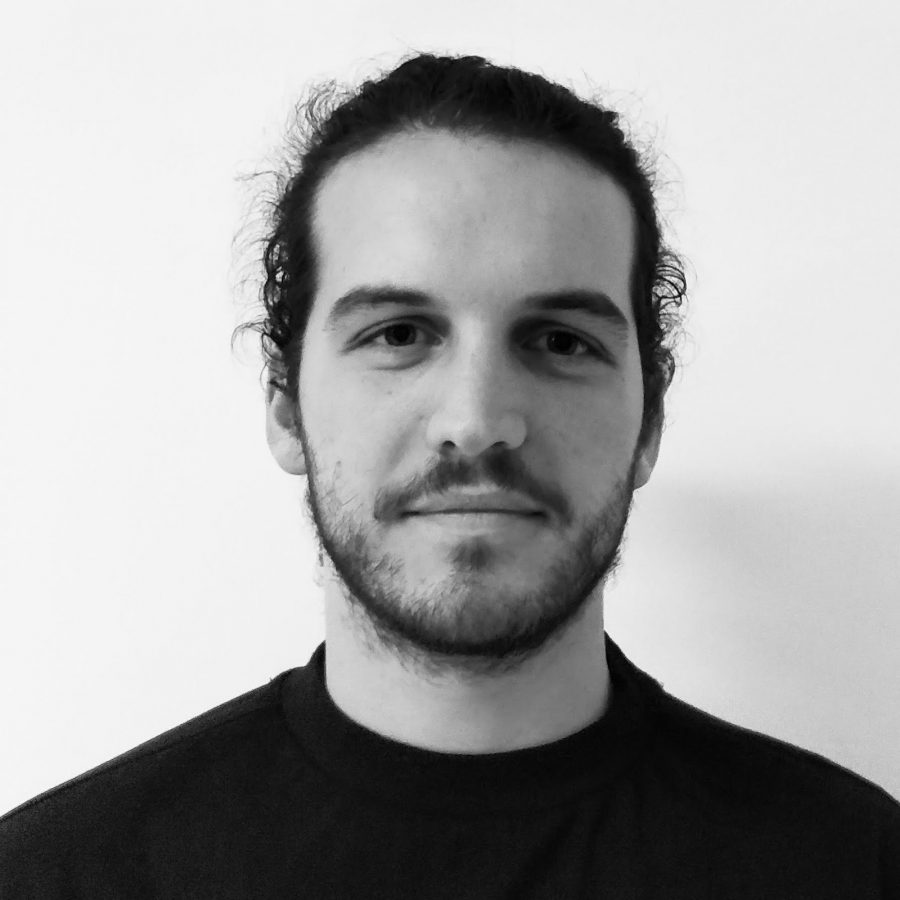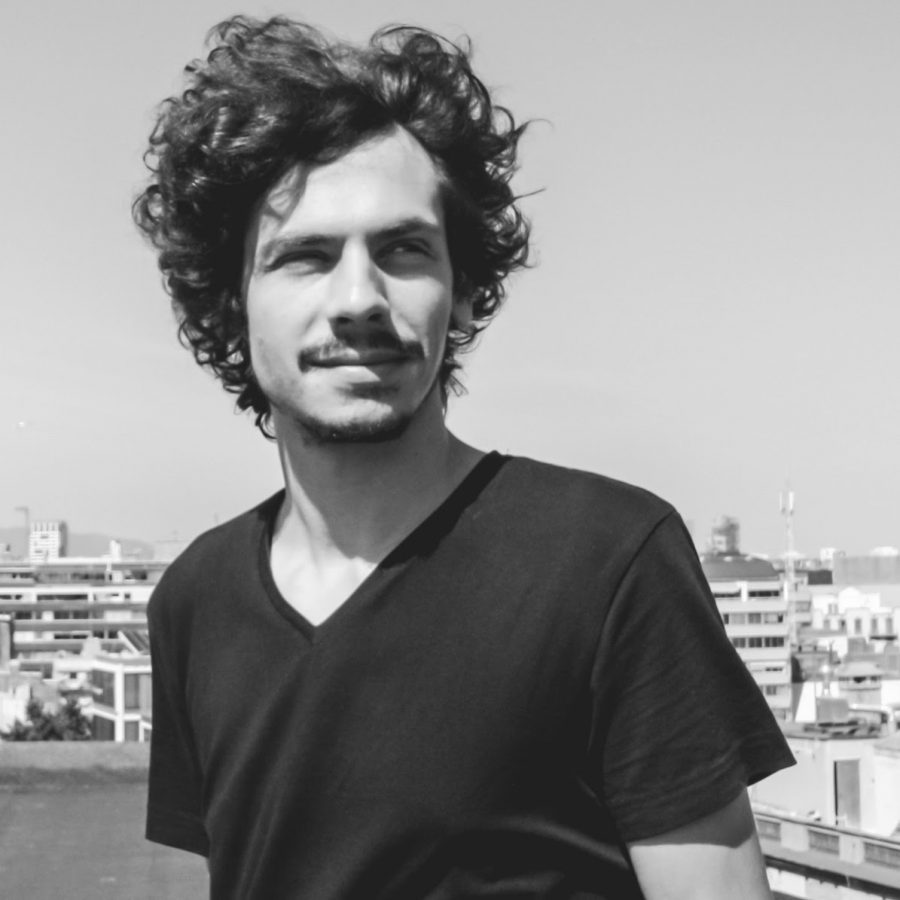IAAC – Institute for Advanced Architecture of Catalonia
Global Summer School Program 2021
Online Course: Urban Analytics // Understanding cities through big data mapping
Duration: from the 12th until the 15th July 2021
URBAN ANALYTICS
UNDERSTANDING CITIES THROUGH BID DATA MAPPING

Ph credits: Iacopo Neri, Eugenio Bettucchi
Syllabus
Data is everything, and is everywhere.
From our social interactions to the way we work, there is not a single moment of our days that isn’t propelled nor generating some sort of data. These bits of information have saturated our cities radically transforming their productive sectors, and are now food for training models and AI, which are promising to drastically alter our perception of society. Because more than 50 years have passed from the birth of the information age and the long craved wisdom has not arrived yet. It became clear that quantity does not stand quality and data ownership, interoperability, scalability, and – more important – objectivity are key topics around which the future is currently being debated.
These challenges call for designers and creative thinkers to reconsider our interactions with data. They demand innovative solutions that hack the current status quo and switch the paradigm from a mere bits-to-product extraction to a real citizen empowerment. In this scenario, global metropolises have been disruptively altered, and if the private agents are speeding up digital processes to improve their services with their targeted opinionated data, post-COVID strategies of the most advanced cities are struggling to parallely provide such efficiency in constructing a more sustainable, and positive environment for their citizens. To support them, an alternatively critical understanding of the contemporary urban phenomena is required. An alternative comprehension that doesn’t refuse data but oppositely it is able to creatively mutate it in order to envision inspiring new representations, real fuel for planning.
The aim of the course is to introduce participants to the exciting world of geospatial data analytics with a specific focus on the understanding and representation of urban patterns, following the question of what is the nature of the city through the lens of its services and urban fabric. As an output, the workflow allows for comparison between diverse locations and functions as an advanced basemap for further specific analysis.
Main tools:
- Rhinoceros
- Grasshopper 3D
Learning objectives
At course completion the student will:
- Manipulate and combine data from different data source and data typologies
- Set up a flexible protocol to analyse different urban contexts in the world
- Learn the fundamentals of APIs
- Learn how to creatively represent geospatial data and how to create a web map
Previous Knowledge / Students background requirements
The workshop is open to all applicants with a bachelor degree related to the fields of Architecture, Design, Arts and Engineering willing to engage in the program. No previous extensive knowledge is required. The participants will receive lectures and classes to be introduced to the workshop’s topics, softwares and tools.
Faculty

Iacopo Neri’s research lies at the intersection between architecture, computer science and urban planning. He holds a Master of Science in Architecture with Distinction at The Polytechnic University of Milan, and a Masters in City and Technology at the IAAC – Institute for Advanced Architecture of Catalonia. He has been involved in teaching activities since 2015 at the University of Florence, The Polytechnic University of Milan, and at IAAC – Institute for Advanced Architecture of Catalonia, where he is currently faculty of urban computational design and part of the AAG’s Computational Urban Design Research Team.
Faculty

Eugenio Bettucchi is a civil engineer with a degree in Building Engineering & Architecture from Alma Mater Studiorum, University of Bologna (IT). He developed his thesis focusing on robotic material deposition based on real-time feedback. Actually he is senior designer at Noumena Barcelona, his interests and skills lie in computational design and digital fabrication. He is part of the IaaC assisting students in MRAC (master in Robotic and Advanced Construction) and MaCT master programme. He is also involved in the ROMI project (Robotics for Micro Farming) contributing to the development of autonomous aerial solutions.
WEEKLY SCHEDULE & TIMETABLES
Option 1 – Synchronous calendar (Barcelona time – GMT+2)
Recommend to European, African, Asian and Australian participants.
From Monday 12th July until Thursday 15th July 2021
Teaching activities will run from 10.00 to 14.00 GMT+2
– 8 hrs of live teaching
– 8 hrs of live mentoring and exercises review
– 1 hr of IAAC summer lecture
– Final GSS diploma certificate ceremony
Option 2 – Asynchronous calendar (America time – GMT-4)
Solution recommended to participants from all the time zones who are looking for a more flexible schedule.
From Monday 12th July until Friday 16th July
Live teaching activities will run from 11.00 am to 1.00 pm (GMT-4)
– 8 hrs of recorded teaching
– 8 hrs of live mentoring and exercises review
– 1 hr of IAAC summer lecture
– Final live GSS diploma certificate ceremony
Main tools
Software
– Rhinoceros
– Grasshopper 3D
– Code Editor (Visual Studio Code or PyCharm (Community) or Jupyter Notebook, etc.)
– Python 3.7
– Postman
– Adobe Photoshop
Hardware
8 GB memory (RAM) or more
At least 4 GB space in the hard drive
Operational System
All the exercises and topics are able to run in any operating system, however we suggest to use the latest versions of your operating system.
- Windows 10
- Mac OS (10.14+)
- Ubuntu 16.04 or 18.04

